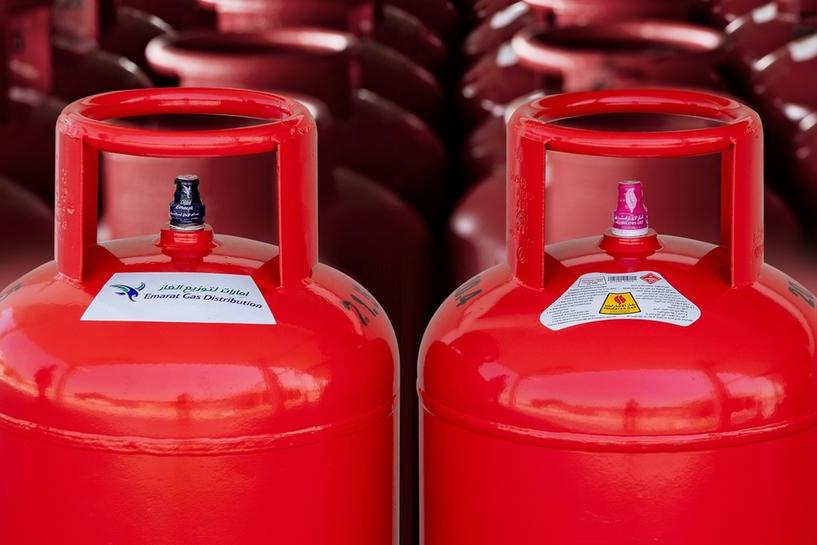Poor installation, substandard equipment, and lack of regular maintenance are among the most common risks associated with gas use in Abu Dhabi, according to field surveys and inspections conducted by the Abu Dhabi Department of Energy (DoE).
The department observed frequent violations among residents using LPG systems, including domestic workers and labourers who use gas appliances, as well as employers in restaurants and cafeterias who are responsible for ensuring their workers are adequately trained. Violators also included recruitment companies involved in hiring workers for such roles.
Among the most common violations were the use of substandard hoses and gas equipment, reliance on unlicensed gas suppliers, and the storage of gas cylinders without a permit from the Department of Energy — all of which pose significant safety risks.
However, these risks can be mitigated through stricter enforcement, certified installations, and increased public awareness.
Thousands of inspections
To safeguard lives and property, the DoE launched the second phase of its public awareness campaign promoting the safe and responsible use of LPG systems. Held under the slogan ‘your safety is our priority’, the campaign continues efforts initiated in 2024 and 2025 to reinforce regulatory compliance and embed a culture of safety.
Ahmed Alsheebani, Executive Director of Regulatory Affairs for the Petroleum Products Sector, told Khaleej Times, “We inspected more than 11,000 facilities as part of broader efforts to enhance compliance, encourage the safe use of gas, and instil a culture of safety and accountability across residential, commercial, and industrial sectors.”
Precautions
As part of the gas systems improvement initiative, the department replaced 450 central gas tanks and control panels and installed over 10,000 gas leak detectors in buildings. It decommissioned outdated or duplicate systems in several properties to reduce risk.
Alsheebani added “This vital project significantly enhanced the safety of central gas systems across the emirate, through thorough assessments and necessary upgrades.”
To ensure compliance, the DoE enforces a series of gas safety regulations. These include prohibiting the use of gas cylinders in buildings equipped with compliant central gas systems, ensuring proper ventilation and emergency exits in commercial kitchens, and mandating periodic maintenance by authorised service providers. Leaks must be reported immediately via emergency numbers 997.
Requirements
Commercial establishments, such as restaurants, must also maintain updated documentation, including a certificate of conformity, a No-Objection Certificate, a Project Completion Certificate, an Annual Maintenance Contract, and a Civil Defense Safety and Prevention Compliance Certificate.
Failure to comply could result in legal consequences, including potential closure.
Adopting preventive practices
The department advises families and food establishments to adopt preventive practices, like installing gas leak detectors, working only with authorised gas companies, and conducting regular safety checks.
For instance, homeowners are encouraged to test for leaks by applying soapy water to gas connections — bubbles may indicate a leak — and to promptly replace any damaged hoses.
Alsheebani stressed, “If you smell gas, turn off the main valve immediately, ventilate the area, avoid turning on electrical switches or flames, and call emergency services or your gas provider.”
Through its ongoing awareness campaign, the DoE is promoting safe gas use through a comprehensive outreach strategy. This includes digital campaigns in eight languages across social media platforms, SMS notifications in partnership with government entities, and the distribution of multilingual leaflets to food businesses.
Additionally, the department is organising Gas Safety Majlis sessions and interactive workshops aimed at vulnerable groups, including labourers and kitchen workers, utilising educational tools like virtual reality to reinforce best safety practices and alter behaviour.


